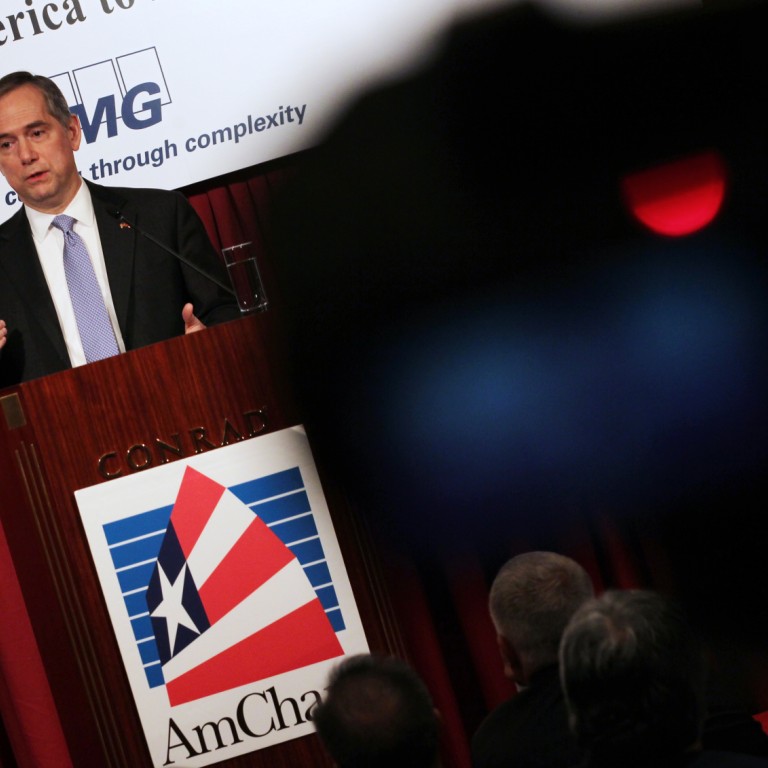
As outsiders try to help Hong Kong, Beijing and its local backers protest too much
Officials seem unwittingly to be showing what they really think of democratic development
In recent weeks we have seen heightened sensitivity to seemingly innocuous comments made by US and British officials about Hong Kong's political development.
Clifford Hart, the new US consul general, met local politicians and expressed support for "genuine democratic suffrage". British Foreign Office minister Hugo Swire likewise stressed the need for "genuine choice". Each carefully backed fundamental democratic principles that are guaranteed in the Basic Law, without endorsing any parties or policies.
Their words drew sharp criticism from the chief executive, the chief secretary and China's foreign ministry - accusations of foreign interference and warnings that the US and Britain should stay out of Hong Kong's internal affairs. The chief secretary's prickly response seemed especially inappropriate on the United Nations' International Day of Democracy, as did the rest of the official push-back, just ahead of a UN review of the mainland's human rights.
A first consideration is whether other countries have a legitimate interest in Chinese human rights practices. Britain may claim a direct interest in Hong Kong's development, being one of the parties to the Sino-British Joint Declaration. The US may not be a party, but Beijing nevertheless wooed Washington decades ago to support its Hong Kong model. Both countries are asked to treat Hong Kong as a separate entity from the mainland for a variety of purposes involving trade and legal recognition, which has attracted thousands of foreign businesses to the city. Such separate recognition surely depends on the city's promised autonomy and democratic development.
Beyond these Hong Kong-specific obligations, Beijing has other commitments to human rights under a variety of international treaties. The UN's Universal Periodic Review, due for the mainland this month, is one acknowledgment that the human rights practices of countries are matters of international concern.
Beijing appears to be suffering a crisis of confidence. Condemning moderate comments on its Hong Kong policies or human rights hardly seems calibrated to demonstrate the mature confidence of a leading power. Major powers learn to live with foreign criticism. A measured response tends to be a mark of self-confidence.
But Beijing still has difficulty accepting criticism from its own people, as witnessed in recent attempts to cut off discussion of constitutionalism and democracy. Closing off domestic criticism may actually encourage outside critics to speak up responsibly.
At the Hong Kong government level, open dismissal of solicitous foreign officials' comments similarly signals weak resolve on democratic development, not to mention an obvious effort to pander to Beijing. Local officials representing an autonomous community may want to quietly appreciate outside solicitude. Those parroting the central government's officials on the issue may cause further doubts in Hong Kong about their commitment to the city's autonomy and democratic development.

